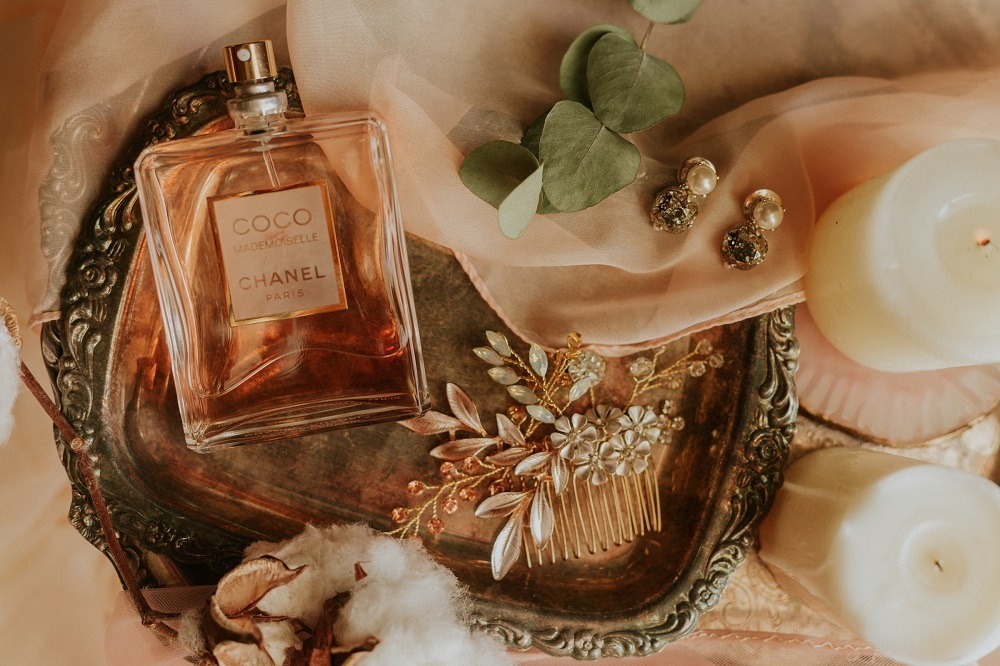Can Fragrances Go Bad? Disclosing the Longevity Secrets of Fragrance. Perfume is not immune to the passage of time, and as much as we love our favourite scents, we must face the reality that they do have a finite lifespan. But how can we tell if a perfume has expired? I’m pleased to share the secrets of fragrance longevity with you on this aromatic trip.
Picture this: concoctions from myriad aromatic compounds, from mesmerizing essential oils to crafty solvents and snazzy fixatives! Oh yes, we’re diving deep into this fragrant labyrinth, where these enigmatic ingredients conspire and converge, forging an olfactory symphony that ensnares our senses in its captivating embrace!
However, the delicate balance of these components can be influenced by various factors determining the fragrance’s expiration timeline.
How to store your perfume?
How you store your perfume plays a crucial role in perfume longevity. Ah, let’s shed some light on a fragrance’s delicate dance with its surroundings. You see, light, especially the sneaky ultraviolet (UV) rays, can be quite a troublemaker. They have a knack for causing reactions that tinker with a perfume’s chemical composition, like a remix gone awry. The result? The notes we know and love begin to degrade and, dare I say, change.
But that’s not all – temperature, too, plays a role in this intricate performance. Imagine a stage where excessive heat rushes the actors, hurrying their chemical processes, while extreme cold stands backstage, inducing a bit of drama with potential separation or cloudiness.
And let’s not forget about air exposure. It’s like an unwanted guest at the party, causing oxidation that messes with the flavor and color of the fragrance. Yes, our beloved scents are indeed sensitive souls, and their surroundings can be a bit of a challenge to navigate.
What kind of ingredients is in the perfume?
The quality of the ingredients used in perfume might also have an impact on its lifespan. Fragrances with a higher concentration of natural oils are more susceptible to degradation than those predominantly composed of synthetic components.
Now, let’s talk about something essential – the very heart and soul of our fragrances, the precious essential oils. Over time, these oils, like a vintage wine, can undergo gradual degradation. And as they transform, they can quite substantially alter the character of a perfume, like a gentle evolution of a story.
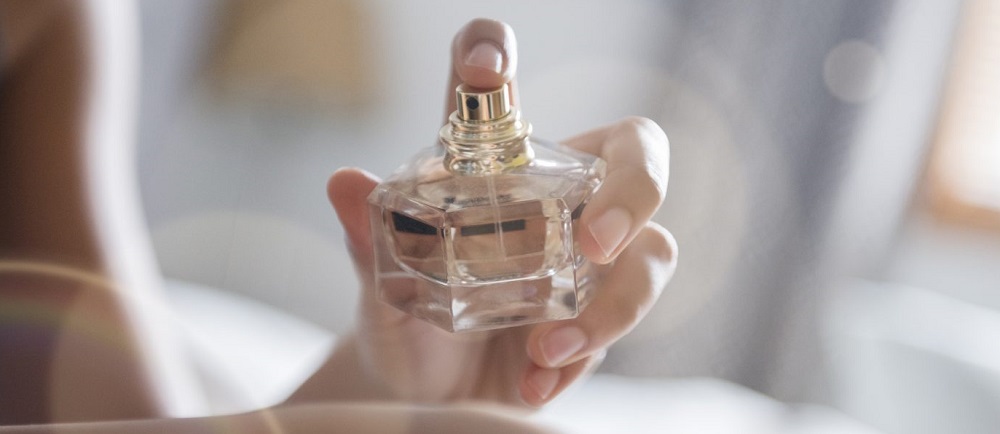
Humidity’s Effect on a Perfume
But hold on, there’s another player in this fragrant orchestra – humidity. Picture it as a climatic conductor. High humidity levels, much like a demanding maestro, can accelerate chemical reactions. It creates an environment that’s oh-so-inviting for unwelcome guests like bacteria, who just love to crash the party.
And what happens when they do? Well, it’s like the scent equivalent of a makeover. The fragrance can degrade, metamorphosing into something different, almost unrecognizable, as if it’s taken on a whole new persona. So, you see, the story of a fragrance isn’t just about the ingredients but also the environmental factors that shape its narrative.
To protect your perfumes, it is advisable to store them in dry areas and avoid exposing them to excessively humid environments.
Perfume Bottle
The perfume bottle and packaging quality also have a role in fragrance preservation. Transparent or clear glass bottles allow light to penetrate and affect the perfume’s stability. On the other hand, opaque or dark-coloured bottles provide better protection against light exposure. With airtight packaging and dependable seals in place, our fragrances remain untouched and untainted.
While perfume bottles typically do not come with explicit expiration dates, some manufacturers provide general guidelines regarding the expected shelf life of their products. It is worthwhile to check the packaging or contact the brand’s customer service for any specific recommendations tailored to your perfume.
Has my perfume expired?
To determine if your perfume has expired, there are several signs to look out for. Changes in the scent profile are the most noticeable indication. If the perfume no longer smells as it did when you first acquired it, with notes fading or becoming unappealing, it may have reached the end of its lifespan. The discolouration is another telling sign. If the perfume has darkened significantly or appears cloudy, it is likely past its prime. Changes in consistency, such as sediment or a thicker or thinner texture, can also suggest expiration. Pay attention to the packaging. Any signs of damage, leakage, or broken seals are like red flags waving in the wind. Compromised packaging can speed up a perfume’s decline.
While it’s inevitable that perfumes will eventually expire, proper storage, limiting exposure to unfavourable conditions, and adhering to manufacturer recommendations can help extend their lifespan. So, cherish your scents, but be mindful of the passage of time and the delicate nature of the fragrance.
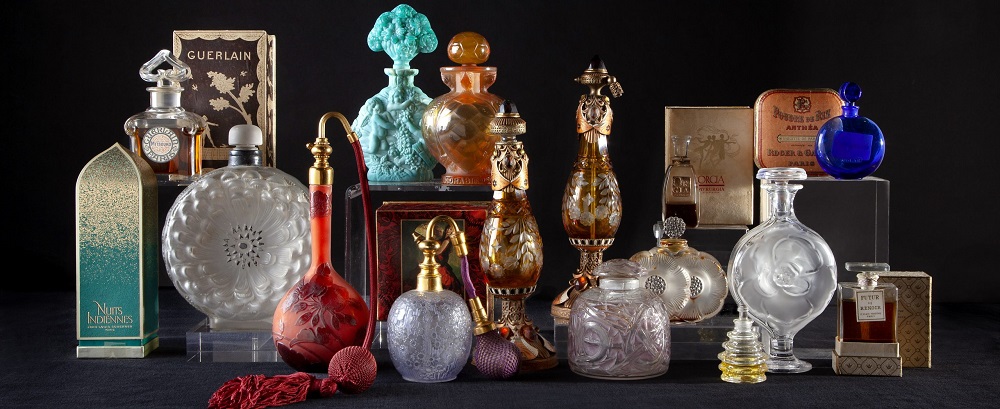
How to extend a Perfume’s Lifespan
Although the lifespan of a fragrance may not extend into eternity, there exist certain measures one can employ to extract the utmost longevity and enjoyment from these cherished aromatic elixirs.
First and foremost, it all begins with proper storage – a perfume’s best friend. Imagine a cozy, cool, and dark sanctuary where your bottles can rest, away from the harsh glare of direct sunlight and the unpredictable swings of extreme temperatures. This environment serves as a protective cocoon, safeguarding the chemical harmony within the bottles and allowing your fragrances to age gracefully. So, think of it as a spa day for your perfumes, ensuring they stay as vibrant as the day you first fell in love with them.
Make sure to tighten the bottle caps securely after each use to minimise air exposure and oxidation. Excessive exposure to air can lead to degradation, so refrain from excessive spraying or leaving the bottles open for extended periods.
Rotating and using your perfumes regularly is another effective way to prolong their lifespan, instead of letting them sit idle for too long, alternate between different fragrances in your collection.
A gentle reminder, my fragrance enthusiast friends, improper storage conditions can be a perfume’s worst nightmare. Think of it as subjecting your beloved scents to the harshest of elements – excessive light, blistering heat, and the uninvited company of air.
Additionally, the age of the perfume itself plays a role. The longer a fragrance has been stored, the more likely it is to have undergone chemical changes that result in a diminished scent profile.
Yes it is true, the age of a perfume does play a role. You know, the age of a perfume isn’t just a number—it’s like a ticking time bomb for its fragrant soul! Picture this: the longer you stash it away, the more it weaves a tale of chemical transformations, like a scent metamorphosis in a secret alchemist’s lab! And guess what? This alchemy can lead to a little hiccup in its aroma symphony—yeah, a bit of a bummer for your senses!
Oh, but wait, there’s more! Keep a close eye on your precious potion for any visible tell-tale signs of aging. We’re talking about stuff like discolouration—like, if your once-clear liquid starts playing Picasso with colors! And hey, texture issues are a no-go too; we’re not talking about turning your perfume into a crunchy granola bar!
And if you spot some strange particles or residue hanging out in there, well, that’s not the guest list we want for this party! It’s like your perfume’s way of saying, “Hey, I might’ve overextended my welcome, time to bow out gracefully!”
But fear not, fragrance aficionados! Don’t toss those prized perfumes just yet. By giving ’em some tender loving care and watching out for those signs, you can make sure they stay fresh and fabulous for as long as possible! Keep ’em spritzing, keep ’em thriving!
How to Extend the Lifespan of Your Perfume
While perfume does have a limited shelf life, there are several steps you can take to prolong its longevity and preserve its quality:
Shield from light: Excessive exposure to light can degrade the delicate components of a perfume. To protect your fragrance, store it in a dark, opaque container or drawer, away from direct sunlight or artificial light sources.
Maintain stable temperatures: Fluctuations in temperature can negatively impact the quality of your perfume. Aim to store your fragrance in a cool environment with consistent temperatures. Avoid extreme heat or cold, which can alter the fragrance’s composition.
Minimise air exposure: Oxygen exposure can lead to oxidation, causing changes in the scent and deteriorating the perfume over time. When using your perfume, spray it directly onto your skin rather than into the air. It is imperative to house it within the confines of a somber, light-shunning vessel or discreetly nestled within a drawer, far removed from the harsh caresses of direct sunlight or the artificial luminescence of man-made light sources.
Gentle handling: Avoid vigorously shaking your perfume bottle. While it may be tempting to do so, this can introduce air bubbles into the liquid, hastening the oxidation process. Instead, gently swirl the bottle to mix the contents, if necessary.
Secure the perfume bottle cap: After each use, tighten the bottle cap securely. This prevents air from entering the bottle and guarantees that your perfume lasts longer.
By following these rules you can can prolong the life of your favorite fragrance and relish its alluring scent for an extended period. Proper storage, limiting air exposure, and gentle handling will help retain the fragrance’s integrity and provide a lovely olfactory experience with each spritz.
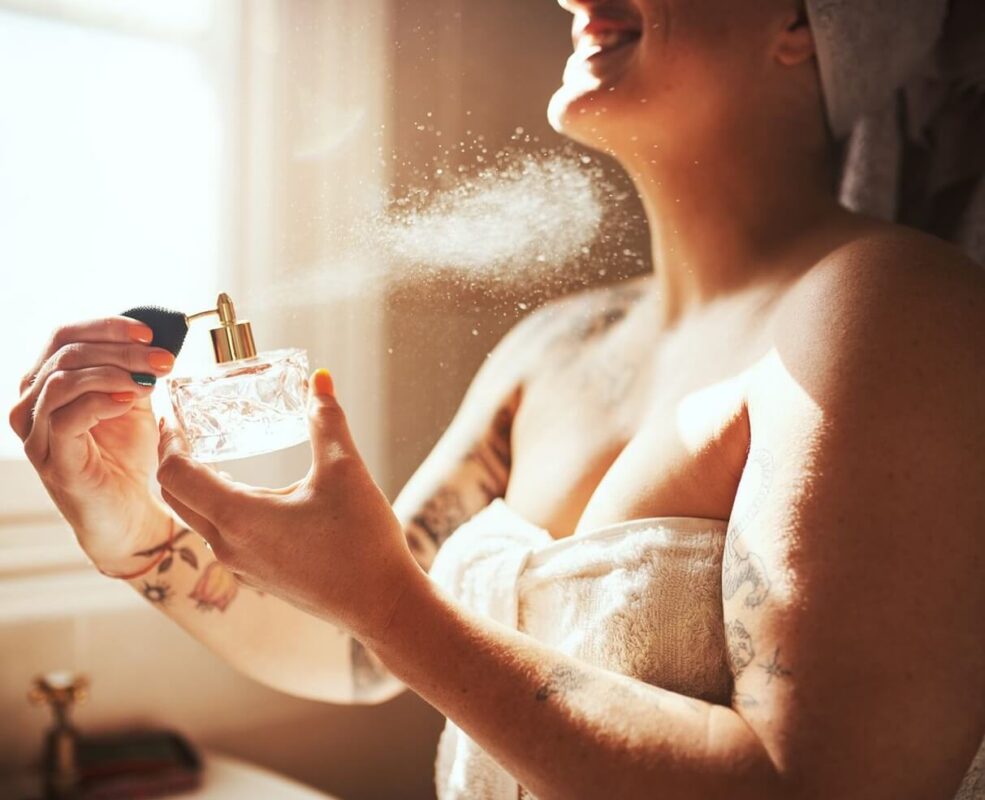
How to Determine If Your Perfume Has Expired
You can make informed decisions about using and replacing your favourite scents by recognising the signs of perfume expiration. Here are some key indicators to look out for:
Altered Scent:
One of the most evident signs that your perfume has expired is a noticeable change in its scent. The delicate balance of aromatic chemicals inside the fragrance can shift with time, causing the notes to fade or change. The once vibrant and distinct top, middle, or base notes may lose their charm, resulting in a dull or unpleasant aroma. If your perfume no longer smells the way it did when you first bought it, it indicates that it may have expired.
Discolouration:
Changes in the colour of your perfume can also be a visual cue of expiration. While some scents naturally darken over time due to the interaction between ingredients, significant discolouration or a cloudy appearance may suggest degradation. If your perfume has turned noticeably darker or acquired an unusual hue, its quality has likely declined.
Consistency Changes:
Be observant of any changes in the consistency of your perfume. Sediment or particles settling at the bottom of the bottle, or a noticeable difference in thickness or thinness of the liquid, can indicate that the aroma has expired. Separation or residue are clear signs of a breakdown in the perfume’s formulation.
Packaging Condition:
Examining the condition of the perfume’s packaging can offer additional insights into its expiration. I’d look for evidence of deterioration like leaks, cracks, or broken seals. Damaged packaging may have allowed air, light, or excessive heat to enter, hastening the expiration process of the fragrance.
Manufacturer Recommendations:
While many perfume bottles do not have explicit expiration dates, some manufacturers provide general guidelines regarding the expected shelf life of their products. Review the packaging or consult the brand’s website or customer service for any specific recommendations. Factors such as the quality of ingredients and the concentration of oils can influence the expiration timeline.
So, here’s the deal: keep those eagle eyes open for any funky signs, like discoloration—your perfume ain’t trying to be a mood ring, right? And if it’s looking chunky or comes with surprise particles, that’s not the texture we’re aiming for! Keep it smooth like butter!
Oh, and remember this golden rule: like any product in this wild world, your perfumes come with their very own shelf life. Savor them when they’re fresh, juicy, and bursting with life, ’cause time waits for no scent! So, don’t let your nose miss out on those fabulous fragrances!
When the clock strikes “expired,” though, don’t panic! It’s time for a new perfume adventure—discover more scents to rock your world!
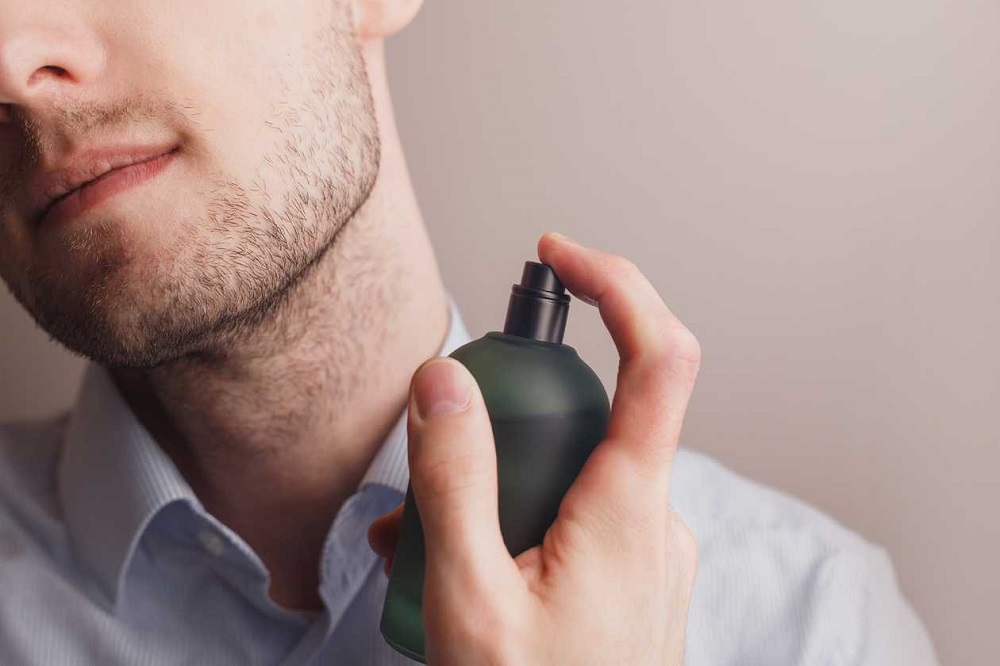
Are expired perfumes harmful?
Expired perfume is generally not harmful but may not provide the desired scent and could cause skin irritations in rare cases.
How Long Does Perfume Usually Last?
Perfumes can last for three to five years, depending on the ingredients, storage conditions, and quality.
Can I Use Expired Perfume If It Still Smells Good?
While an expired perfume may still smell nice, keep in mind that the aroma composition may have changed with time. The top, middle, or base notes may have faded or altered, affecting the overall scent profile. It’s recommended to test the perfume on a small area of skin before applying it extensively to ensure no adverse reactions.
How Can I Tell If a Perfume Is Still Good Without Opening It?
Opening the perfume is necessary to determine its condition. Yet, a quick check of the packaging for any signs of damage, leakage, or unusual discoloration can offer valuable insights.
When the packaging looks pristine and remains in excellent condition, it typically indicates that the perfume itself is likely in good shape.
Can I Revive or Restore an Expired Perfume?
Unfortunately, restoring a perfume’s original scent and quality is challenging once it has expired. The chemical changes that occur over time are irreversible. While some techniques, like decanting the perfume into a smaller bottle to minimise air exposure, may help slow down degradation, they cannot fully restore the fragrance to its original state.
Are There Any Specific Storage Containers or Methods to Preserve Perfume Longevity?
Picture this: those precious fragrances come tucked away in these shiny glass bottles, like little ol’ treasure chests guarding the essence within! And guess what? These bottles are like protective shields, shielding your scent-sational elixirs from the pesky light and the mischievous air, keeping them on their A-game!
So here’s the trick: if you wanna keep those scents alive and kicking, play it smart! Keep ’em in their original packaging—kinda like returning them to their cozy perfume home—or if you need to make a move, transfer ’em to dark, airtight containers! It’s like a stealth mission to preserve those aromas!
But wait, there’s more! I’ve got another pro tip for ya: pick the perfect abode for your perfume pals. Keep ’em cool, dry, and far away from heat sources or those cheeky temperature changes! It’s like finding a zen garden for your fragrances to thrive in!
Do Different Types of Perfumes have Different Expiration Timelines?
We have got a whole range of perfume pals with different concentrations of those captivating fragrance oils. We’ve got the heavy hitters like parfum, the powerhouses of the perfume world, packing a punch with their high oil content! They’re like marathon runners, lasting long and strong on your skin!
But don’t forget the eau de toilette and cologne crews—they’re lighter, breezier, and might not stick around as long. They bring their delightful charm to the fragrance fiesta!
Here’s the secret sauce: if you want your perfumes to live their best, most extended lives, store them like a pro and shower them with love and care! Please give them the VIP treatment! Keep them in the right spot, shielded from light and air voilà; you’ll make their fragrance journey legendary!
So remember, my fragrance connoisseurs, whether parfum or eau de toilette, the key is proper storage and TLC to maximize the magic!
So what is our conclusion?
Absolutely, finally, comprehending the elements that dictate perfume expiration and implementing correct storage methods are paramount in maintaining the excellence and enduring influence of your cherished fragrances.
By adhering to these recommendations and staying alert for any indicators of deterioration, you can savor the captivating aromas that enhance your individual style.
Always bear in mind that a well-preserved perfume not only elevates your presence but also serves as a tribute to the artistry and dedication invested in creating these aromatic masterpieces.

